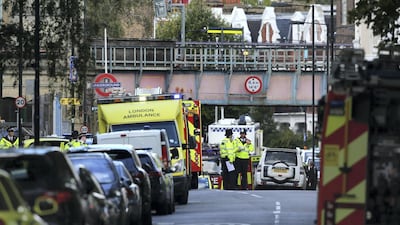Islamist radicalisation referrals to the UK’s counter-terrorism scheme have risen for the first time in four years.
The Prevent programme, which was launched to monitor potential terrorist activity in the UK, has seen a 10 per cent increase in cases flagged to the authorities from April 2019 to March this year.
Over the period, there were 6,287 referrals to the programme, after a record low of 5,737 last year.
Almost 1,500 of those referred were over concerns about Islamist extremism, up 6 per cent from 1,404 previously.
Cases of right-wing extremism were almost unchanged at 1,387, compared with 1,388 previously.
When authorities decide there is a risk that the person referred to Prevent could be drawn into terrorism, they are then assessed as part of a scheme known as Channel and potentially taken on as a case. Engagement with the scheme is voluntary and it is not a criminal sanction.
The highest recorded number of referrals were taken on by Channel, with 697 of the 1,424 referrals examined taken on as a case.
Almost 150 of the people chosen as cases are still presently participating in the scheme.
Right-wing extremism accounted for 43 per cent of them and 30 per cent related to Islamist radicalisation.
“Prevent plays a vital role in stopping vulnerable people being drawn into all forms of terrorism and it is an essential part of our counter-terrorism strategy,” James Brokenshire, the security minister, said.
“These statistics clearly demonstrate that communities, practitioners, education and healthcare professionals, the government, and our law enforcement partners continue to rise to the challenge of tackling all forms of terrorism and extremism, together.”
The figures show most referrals came from the police and education bodies.
A quarter of the referrals related to youngsters aged 15 and under and half of all the referrals were aged 20 or under.
For concerns relating to Islamist radicalisation, the region that received the highest number of referrals per million of population was London.
The Prevent scheme, which has a £40 million ($53.4m) annual budget, has faced criticism from Muslim communities, and the government announced last year it would conduct an independent review.
It had appointed Lord Carlile to conduct it but he was forced to step down over alleged bias and a replacement has not been named.


